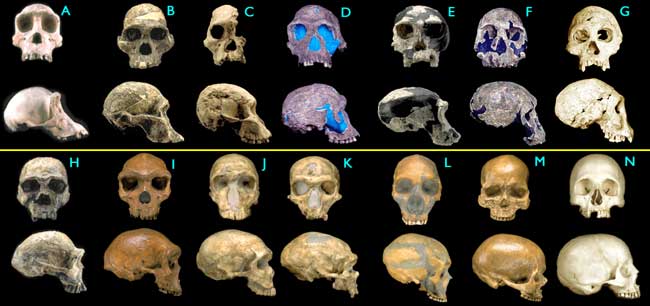A. believer said:[/size][/color][/font]
Oh, so these people are real scientists after all. I see.
[/size][/color]
Oh, so that's the objection, is it? Then let me continue from the post I cited above.One more side note. Here are just a few papers from scientific peer-reviewed journals that relate directly to either design theory or scientific challenges to Darwinian evolution.
Examples of peer-reviewed books supporting design include The Design Inference (Cambridge University Press) by William Dembski and Darwins Black Box (The Free Press) by Michael Behe. Additionally peer-reviewed and peer-edited books addressing design theory have appeared with Michigan State University Press and Cambridge University Press respectively. There is also a peer-reviewed journal that focuses on design theory, Progress in Complexity, Information, and Design, which has an editorial advisory board of more than 50 scholars from relevant scientific disciplines, most of whom have university affiliations.
- The Origin of Biological Information and the Higher Taxonomic Categories, by Stephen C. Meyer, in Proceedings of the Biological Society of Washington, August 2004
- Simulating evolution by gene duplication of protein features that require multiple amino acid residues, by Michael J. Behe and David W. Snoke, in Protein Science, The Protein Society August 2004
- Self-Organization and Irreducibly Complex Systems, By: Michael J. Behe in Philosophy of Science 67 (March 2000), University of Chicago Press
Evolution may not be "going away," but evolution-as-dogma, is. And if you don't even know what a scientific paradigm is and how paradigms work as interpretive frameworks, you'd do well to find out.
Oh you're going to lecture on what science is and isn't? The fact that you put together the words evolution-as-dogma tells me right off the bat you don't know jack about science. Behe and Dembski's books aren't "peer reviewed" by any means. Behe has been repeatedly shown how his arguments in Black Box are incorrect-everything he supposes to require a designer turned out to be perfectly viable through evolution. At this point he's just shilling for publicity.
And hey, you found the only articles remotely related to ID that were published in real journals. Lets see..the first one by Meyer was snuck in to the journal because he knew the editor and didnt actually have it reviewed (the editor was fired). And like I said, being a creationist doesn't prevent you from publishing. It's just that no articles on creationism end up being published. I'll leave you with some testimony from michael Behe in the Dover trial. You know, the one where he says that the definition of science would have to change for ID to be considered science. And astrology would be considered scientific under his definition:
Q But the way you define scientific theory, you said it's just based on your own experience; it's not a dictionary definition, it's not one issued by a scientific organization.
A It is based on my experience of how the word is used in the scientific community.
Q And as you said, your definition is a lot broader than the NAS definition?
A That's right, intentionally broader to encompass the way that the word is used in the scientific community.
Q Sweeps in a lot more propositions.
A It recognizes that the word is used a lot more broadly than the National Academy of Sciences defined it.
Q In fact, your definition of scientific theory is synonymous with hypothesis, correct?
A Partly -- it can be synonymous with hypothesis, it can also include the National Academy's definition. But in fact, the scientific community uses the word "theory" in many times as synonymous with the word "hypothesis," other times it uses the word as a synonym for the definition reached by the National Academy, and at other times it uses it in other ways.
Q But the way you are using it is synonymous with the definition of hypothesis?
A No, I would disagree. It can be used to cover hypotheses, but it can also include ideas that are in fact well substantiated and so on. So while it does include ideas that are synonymous or in fact are hypotheses, it also includes stronger senses of that term.
Q And using your definition, intelligent design is a scientific theory, correct?
A Yes.
Q Under that same definition astrology is a scientific theory under your definition, correct?
A Under my definition, a scientific theory is a proposed explanation which focuses or points to physical, observable data and logical inferences. There are many things throughout the history of science which we now think to be incorrect which nonetheless would fit that -- which would fit that definition. Yes, astrology is in fact one, and so is the ether theory of the propagation of light, and many other -- many other theories as well.
Q The ether theory of light has been discarded, correct?
A That is correct.
Q But you are clear, under your definition, the definition that sweeps in intelligent design, astrology is also a scientific theory, correct?
A Yes, that's correct.
http://www.talkorigins.org/faqs/dover/day11pm.html
Upvote
0







